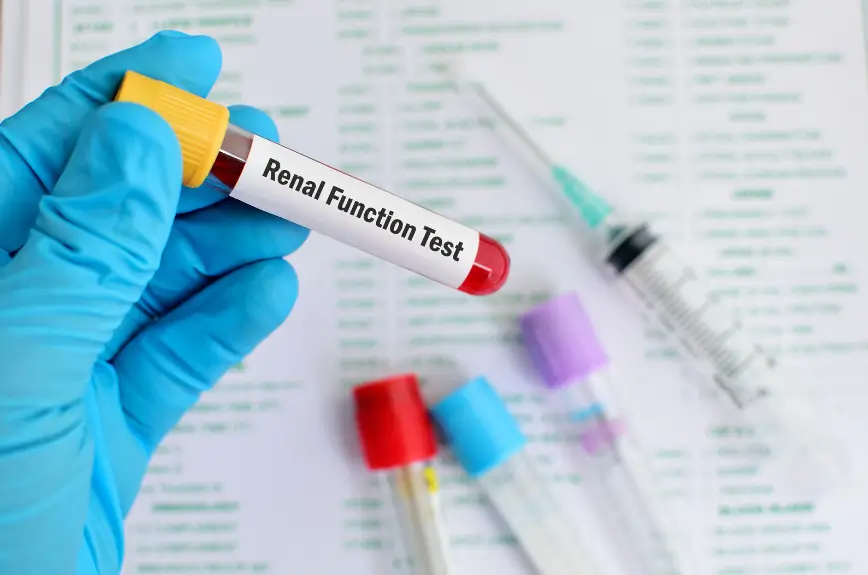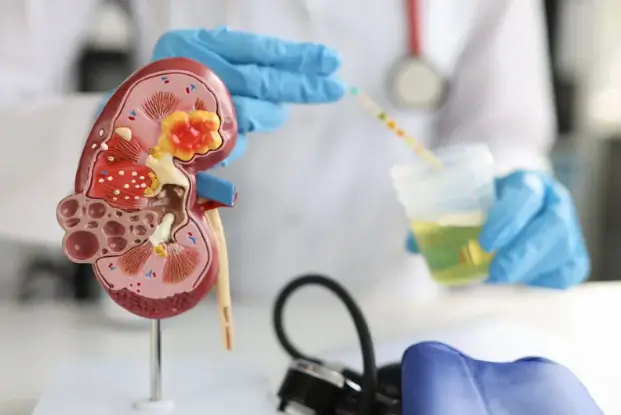Renal Function Test (RFT) is a group of tests that assess the overall functioning of the kidneys. The kidneys play a vital role in filtering waste products and excess fluids from the blood, maintaining electrolyte balance, and regulating blood pressure. RFT helps in diagnosing various kidney disorders and monitoring kidney function in individuals with chronic conditions.
The primary purpose of RFT is to evaluate the health and functioning of the kidneys. It helps in diagnosing conditions such as chronic kidney disease (CKD), acute kidney injury (AKI), urinary tract infections (UTIs), and electrolyte imbalances. Additionally, RFT is essential for monitoring the progression of kidney diseases and assessing the effectiveness of treatment strategies.

RFT typically includes several parameters that provide insights into kidney function:

Q1. What is the normal range for serum creatinine?
A1. The normal range for serum creatinine may vary slightly depending on factors such as age, gender, and muscle mass. In general, the normal range for adults is 0.6 to 1.2 milligrams per deciliter (mg/dL).
Q2. How is eGFR calculated?
A2. eGFR is calculated using equations that take into account serum creatinine levels, age, gender, and race. The most commonly used equation is the Modification of Diet in Renal Disease (MDRD) equation or the Chronic Kidney Disease Epidemiology Collaboration (CKD-EPI) equation.
Q3. What does a low eGFR indicate?
A3. A low eGFR indicates reduced kidney function and may be indicative of chronic kidney disease (CKD). It is categorized into different stages based on the severity of kidney damage.
Q4. What factors can affect the results of RFT?
A4. Various factors such as age, gender, muscle mass, diet, medications, hydration status, and underlying medical conditions can affect the results of RFT. It is essential to inform the healthcare provider about any factors that may impact the test result
Q5. How often should RFT be performed?
A5. The frequency of RFT depends on individual health status, risk factors, and underlying medical conditions. In general, individuals with kidney disease or risk factors for kidney disease may require regular monitoring of kidney function through RFT.

In conclusion, Renal Function Test (RFT) is a valuable tool for assessing kidney function and diagnosing kidney disorders. It plays a crucial role in maintaining overall health and well-being. If you have any concerns about kidney health or require further information about RFT, consult a healthcare professional for personalized guidance and evaluation. Early detection and management of kidney disorders are essential for preserving kidney function and preventing complications. Prolife Diagnostics offers comprehensive Renal Function Tests conducted by experienced professionals, ensuring accurate results and timely diagnosis. Reach out to Prolife Diagnostics for reliable kidney health assessments and proactive management strategies.
©2024 Prolife Diagnostics (a unit of Balaji Mediscans Pvt. Ltd) . All Rights Reserved. | Privacy Policy | Terms And Conditions | Cancellation and Refund Policy
